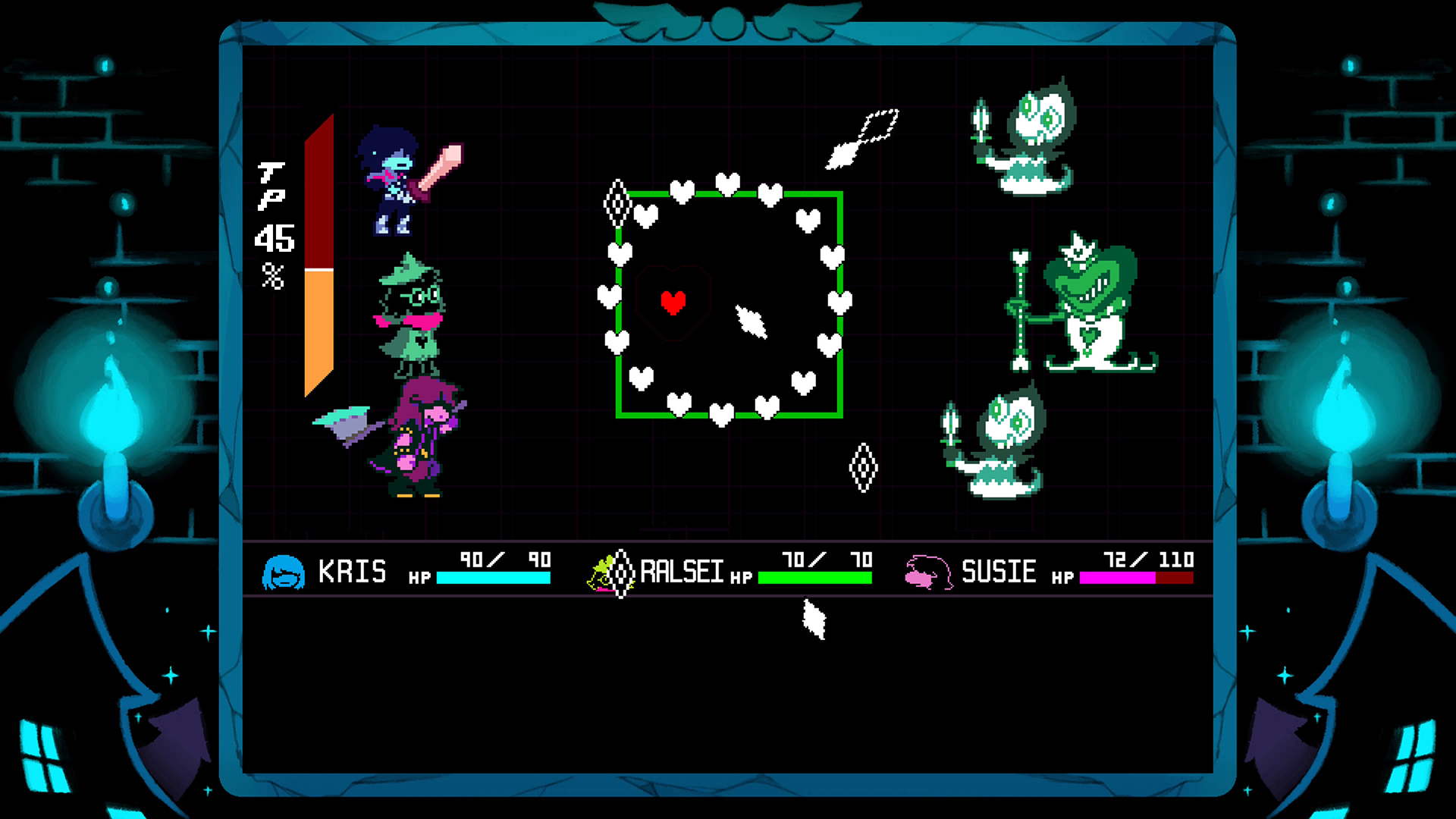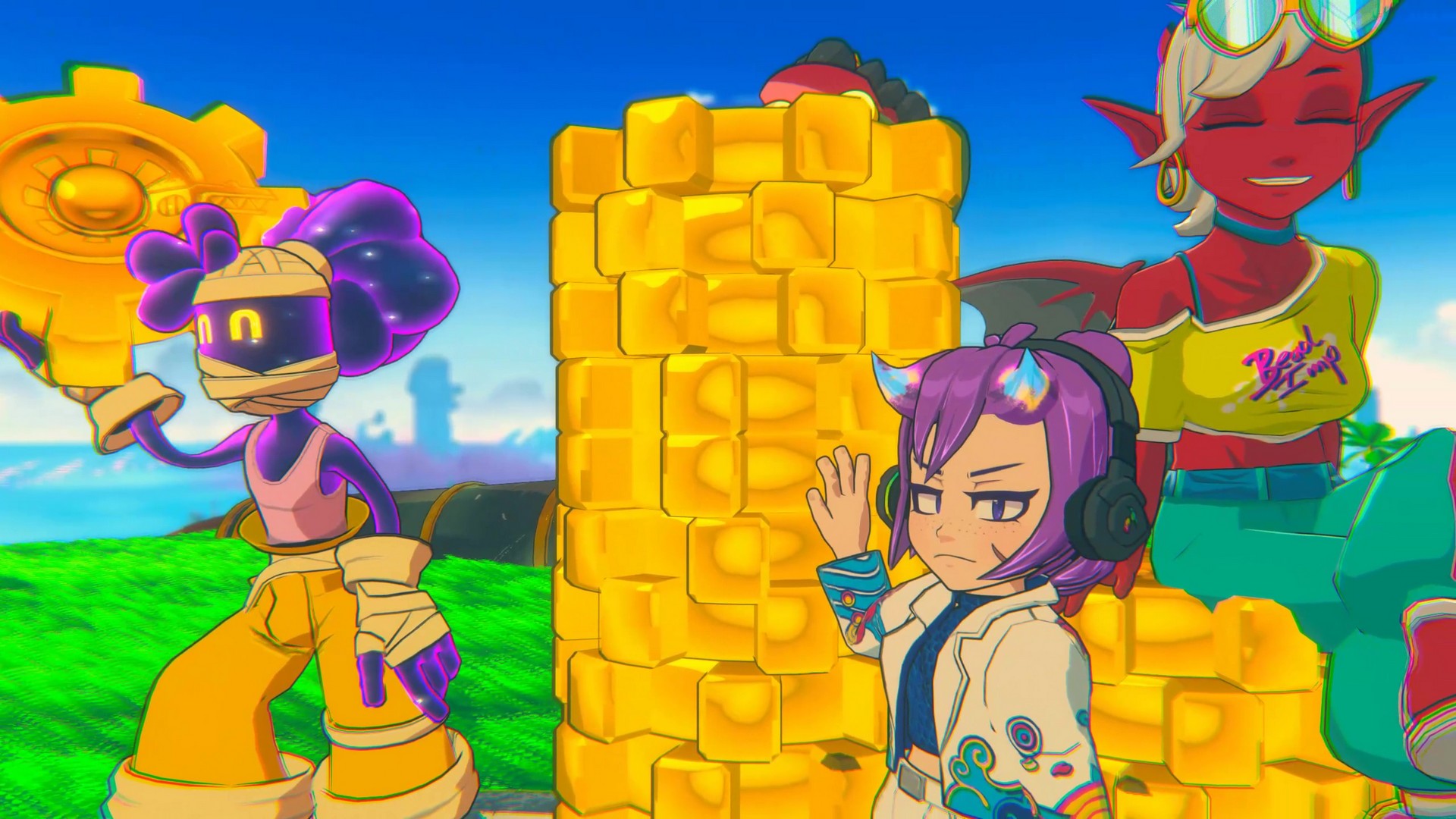GamesRadar+ Verdict
Deltarune channels a broad range of classic RPGs but remains a unique, goofy and heartfelt creation of Toby Fox that finds novel ways to find victory in battle through peaceful means, while tickling your funny bone at every opportunity. Even with just over half of the saga complete, it's already the developer's most ambitious work yet.
Pros
- +
Great breadth of retro-inspired visuals
- +
Inspired and varied battle encounters
- +
Charming characters and often hilarious script
- +
Superb catchy chiptune soundtrack
Cons
- -
A few mechanics outside of battle are less interesting
- -
You'll still have to wait for the next three chapters
Why you can trust GamesRadar+
Deltarune may be one of the most anticipated multi-chapter RPGs ever – yes, even more so than the Final Fantasy 7 remake trilogy, which is at least based on a game with a widely known story. This sort-of spiritual successor to cult classic Undertale first dropped in 2018, while its second chapter didn't arrive until 2021. It's then been an agonizing four-year wait for the next chapter, while the community has gone down rabbit holes of theories.
But creator Toby Fox has spent that time well, rewarding us with not just one but two new chapters for the Nintendo Switch 2 launch – in a package that also serves as the full-priced singularly titled release, with subsequent chapters included as free updates. Deltarune is really here, even if we're only currently able to play four of its chapters.
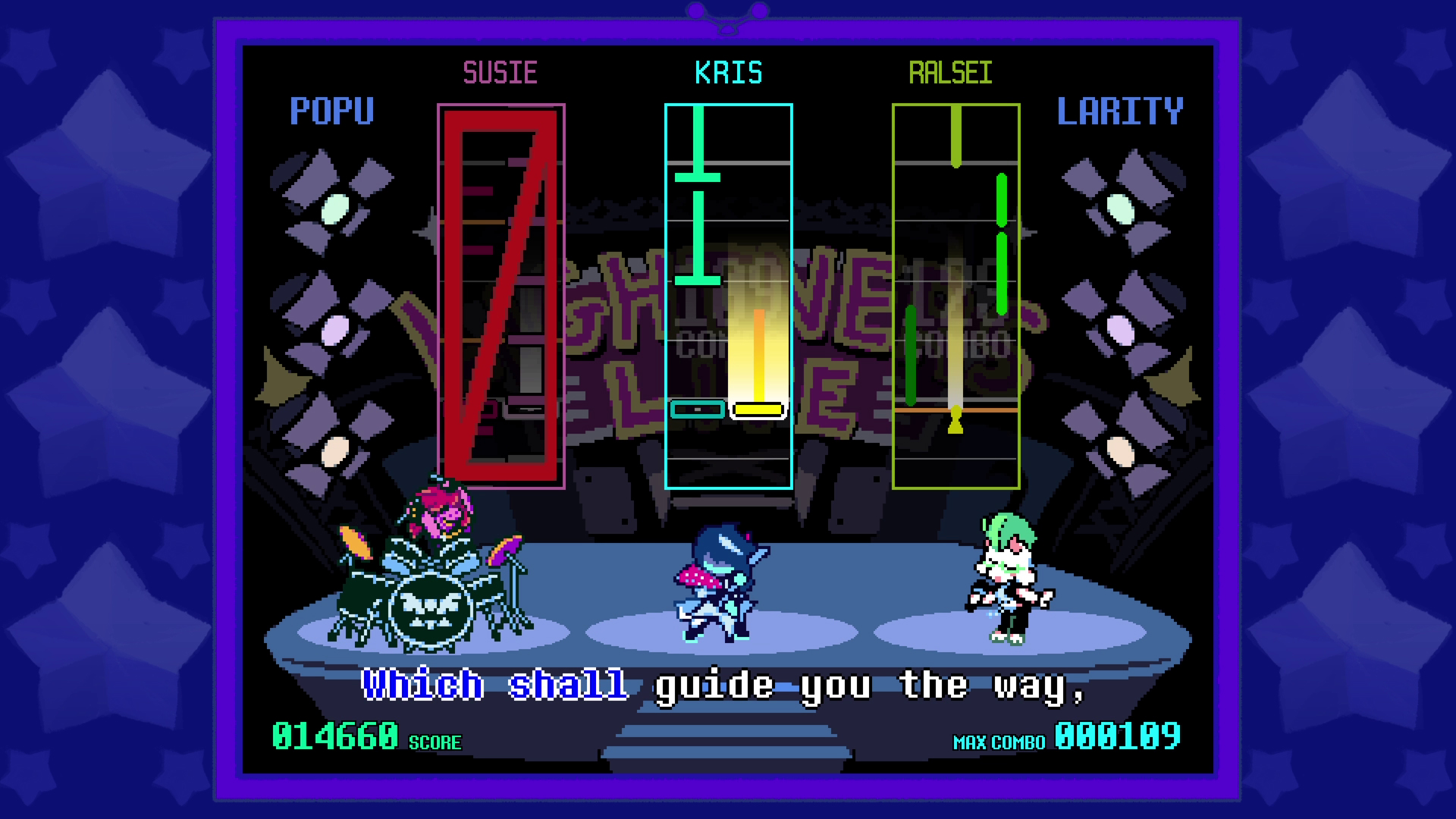
Release date: June 5, 2025
Platform(s): PC, Nintendo Switch 2, Nintendo Switch, PS5, PS4
Developer: Toby Fox
Publisher: 8-4, Toby Fox
It's also one of the few indie titles from Nintendo Switch 2's launch line-up, which is perhaps indicative of Fox's star power – as a composer, he has also contributed to the soundtracks of Super Smash Bros. Ultimate and Pokemon Scarlet and Violet. It's also a perfect fit as, despite Deltarune's PC origins, the game wears its heart on its sleeve as a love letter to the classic SNES RPG adventures of Nintendo's yesteryear. But more than homage, it carves its own path with memorable characters and systems that also means it's not simply a retread of Undertale.
It's not completely essential to have played the 2015 game, since Deltarune isn't a sequel but rather set in a parallel universe to Undertale's, with some familiar characters and references but in a different context. In a subversion to many RPGs where your protagonist is a vessel for the player, you play a canonical character called Kris, a human child living in an idyllic town, complete with a church, diner, library and school, almost reminiscent of Earthbound. The difference is that rather than being set in fictionalized Americana, this world is populated by diverse monster races living harmoniously among each other, including Kris' mother Toriel, the same-but-not-the-same version of Toriel from Undertale.
Its strength fortunately doesn't lie in references to its parallel predecessor but rather in the new characters Kris encounters as they stumble from their normal school day into the Dark World. This includes Susie, the scary school bully who literally threatens to bite your face off, and a mysterious prince named Ralsei. Together, you become an unlikely trio, the Lightners tasked with sealing dark fountains that have started springing up, in order to save both the worlds of the light and the dark. That may sound like your boilerplate JRPG set-up, but Deltarune's delight comes from setting up these conventions before knocking them down.
Acts of kindness
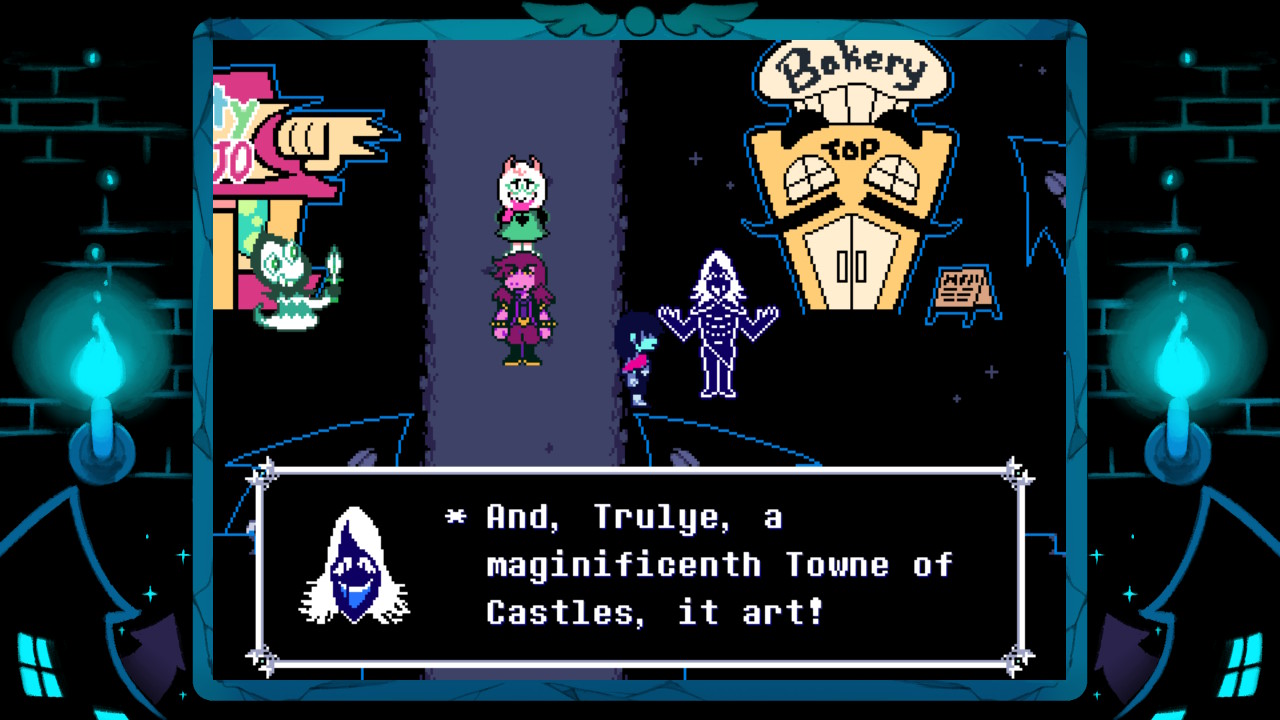
What felt revolutionary about Undertale was that it was an RPG where you were encouraged not to kill enemies but find non-violent solutions to win a battle. That's a philosophy which carries over to Deltarune, and while it may not feel as refreshing as it might have a decade ago, it still has some new twists. For starters, rather than fighting alone, you have a party, which also gives the battles the side-on view of classic Final Fantasy turn-based battles. Initially however, you have limited control over the hotheaded Susie, who would rather go in swinging her axe. For Undertale fans, it sets up a fascinating conundrum of trying to win a battle non-violently by showing mercy to your enemies, but also trying to prevent your reluctant ally from harming anyone (at least in the first chapter).
As someone who had played Undertale's pacifist route, I naturally went with a playthrough with the intent of non-violence and never chose to 'fight'. Where some games that engage with these kinds of morality choices can often present pacifism as the boring way to play, Deltarune comes up with so many ideas to make this the preferable option.
Weekly digests, tales from the communities you love, and more
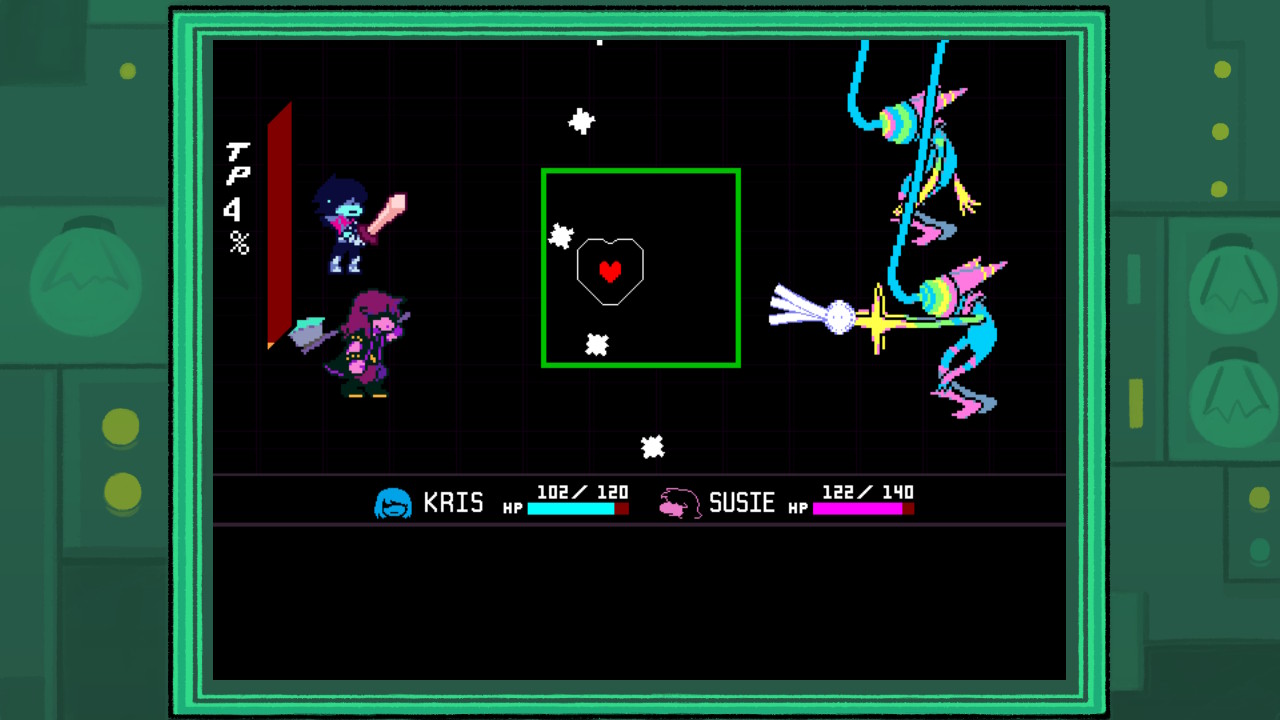
Defense still plays a pivotal role, which, like in Undertale, takes the form of a bullet hell minigame as you move a heart inside a board while dodging enemy projectiles. But what becomes more important is getting your fellow party members to 'act'. That however requires a kind of magic gauge called TP that builds up during battles (it also resets after every encounter so you don't have to hoard it). You can increase this by choosing to defend during your turns but also by narrowly evading incoming projectiles, adding a risk/reward element to the bullet hell sections.
What makes these encounters unique is that both acts and bullet boards are often bespoke and contextual to the bizarre enemies, such as lowering a water cooler's guard by having your party chat while gathered around it. Sometimes, acts can affect an enemy's attack pattern to be easier or harder, but often it's just the excuse for a gag that earns a good belly laugh. The board itself can also function in some unpredictable ways, becoming a minigame within the minigame or a novel way to further the plot. Given this was a mechanic seen in Undertale, it's a delight how Fox finds numerous ways to make the act of evading projectiles different for virtually every enemy encounter.
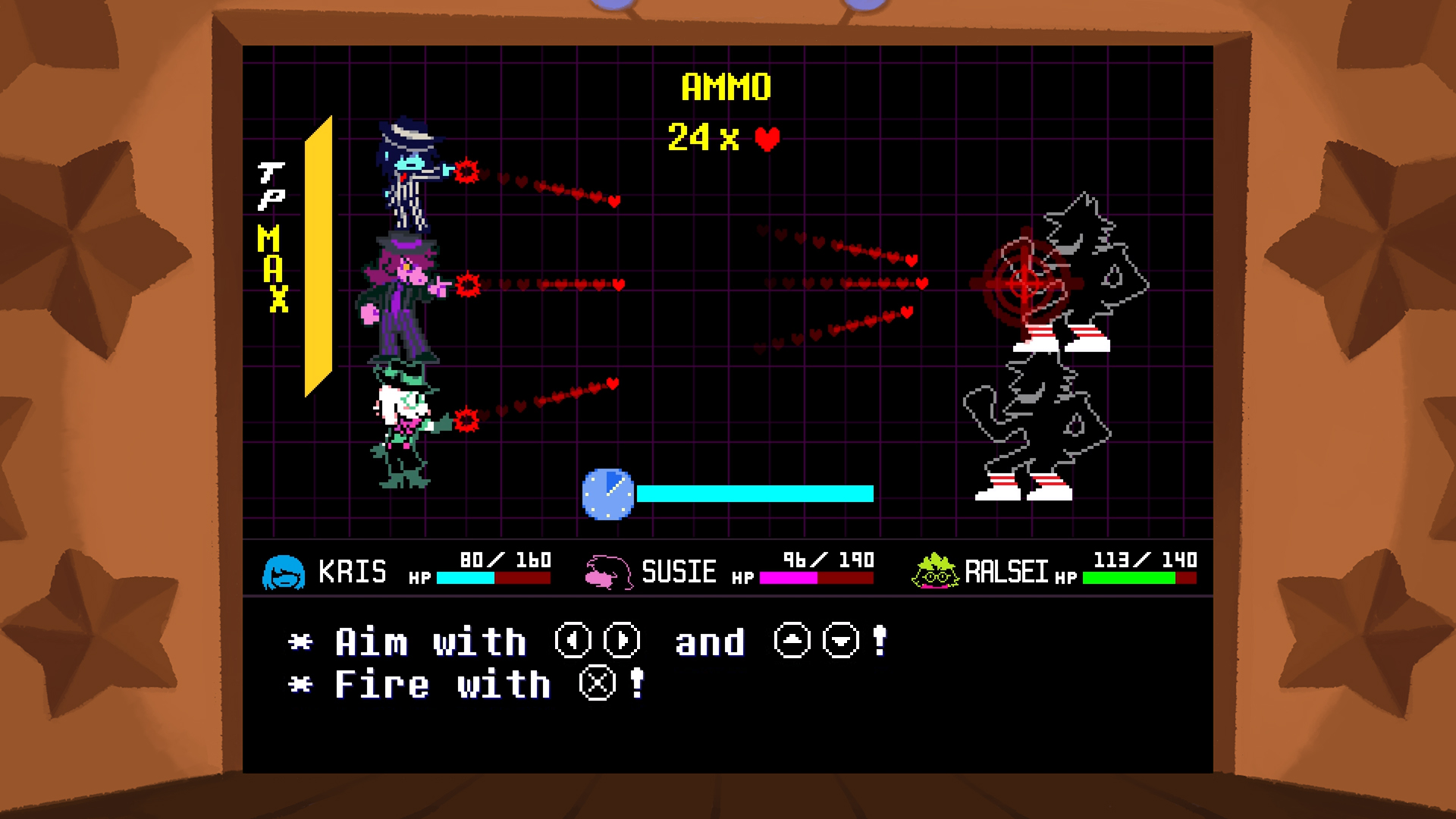
Once you've spared an enemy enough times, you'll also recruit them.
It's perhaps because of the novelty and gags that means these encounters are also often only impactful on the first go, and so if you're not engaging in these battles to gain XP, any repeat encounters tend to feel more repetitive than your typical RPG grind, and fleeing is not an option. There's still an incentive, as once you've spared an enemy enough times, you'll also recruit them, which will see them showing up in your castletown hub in the Dark World. More significant enemies meanwhile will actively help you in your quest to seal the dark fountains.
Occasionally, it feels as if Fox is throwing a bunch of ideas against the wall to see what sticks. A stealth section mostly exists to poke fun at stealth mechanics but remains underwhelming. While you also eventually get to scale some environments, with the ability to leap across gaps, you're still constricted by the frustrating limitations of tile-based traversal. Nonetheless, these are minor quibbles since these only take up a tiny portion of a chapter, while most mechanics are there to serve the narrative, which is really what you're here for.
Character building
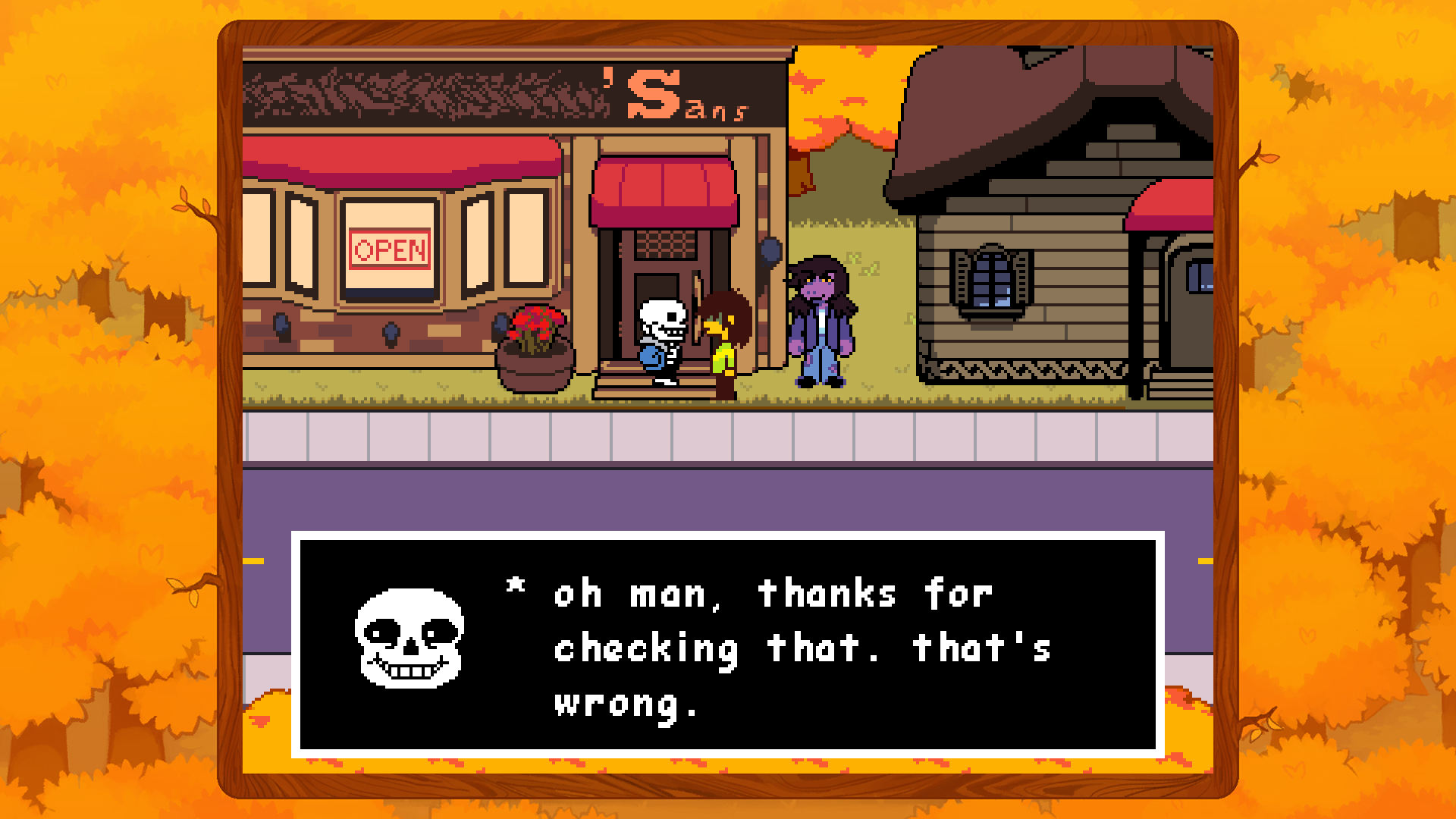
While I shan't be spoiling Deltarune's story, and there's plenty that happens that will no doubt have you searching fan forums for answers, it's less the grand narrative of the lore that compels me than it is the characters. Susie is, for me, the real heart and soul – a proper diamond in the rough. She might be someone I'd normally cross the street to avoid, but over the course of these four chapters, her arc is one of the best as you learn of her vulnerabilities beneath that tough persona and her capacity for kindness, even if she shows it in her own unapologetically brash way.
That's also largely true about each chapter's villain of the week, such as Lancer in the first chapter who tries to foil the Lightners from time to time to prevent you reaching his father the tyrant king, or Tenna in the third chapter who wants to keep your party playing their game show forever. It helps that these characters are all memorable, goofy and flawed in their own way, to the point that you come to empathize with them even as you'll eventually have to battle over conflicting goals rather than because they're evil.
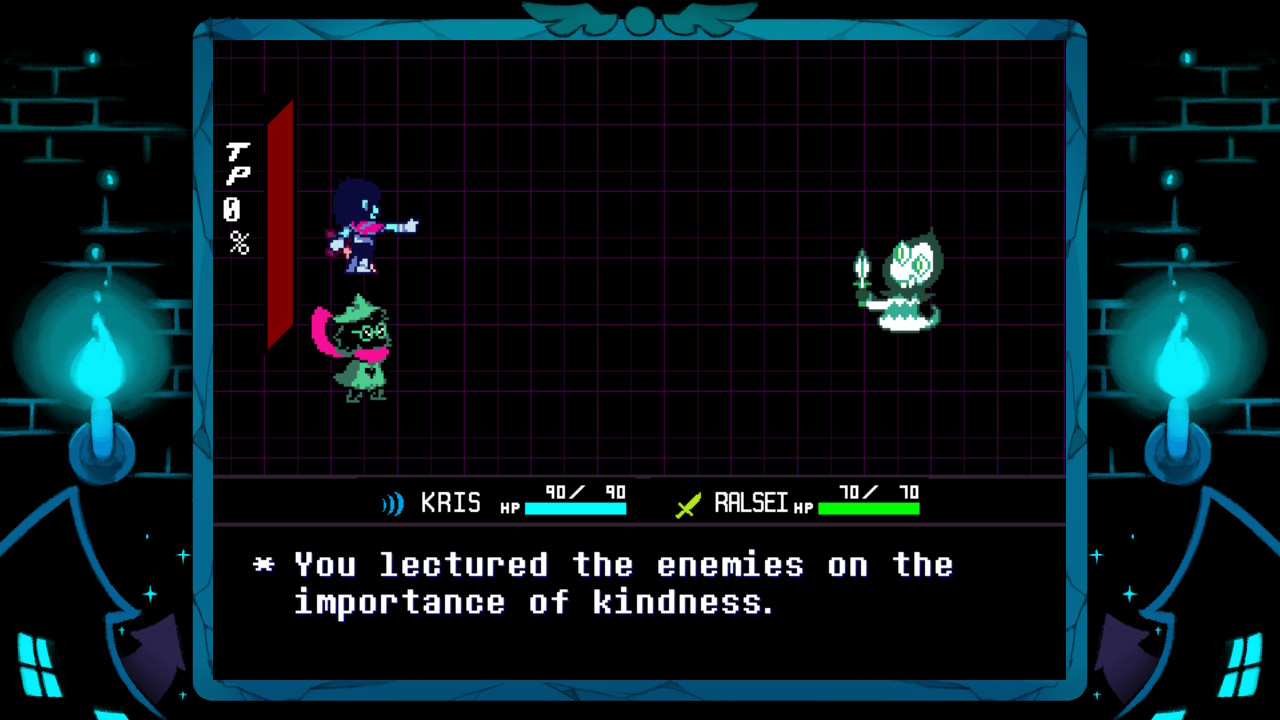
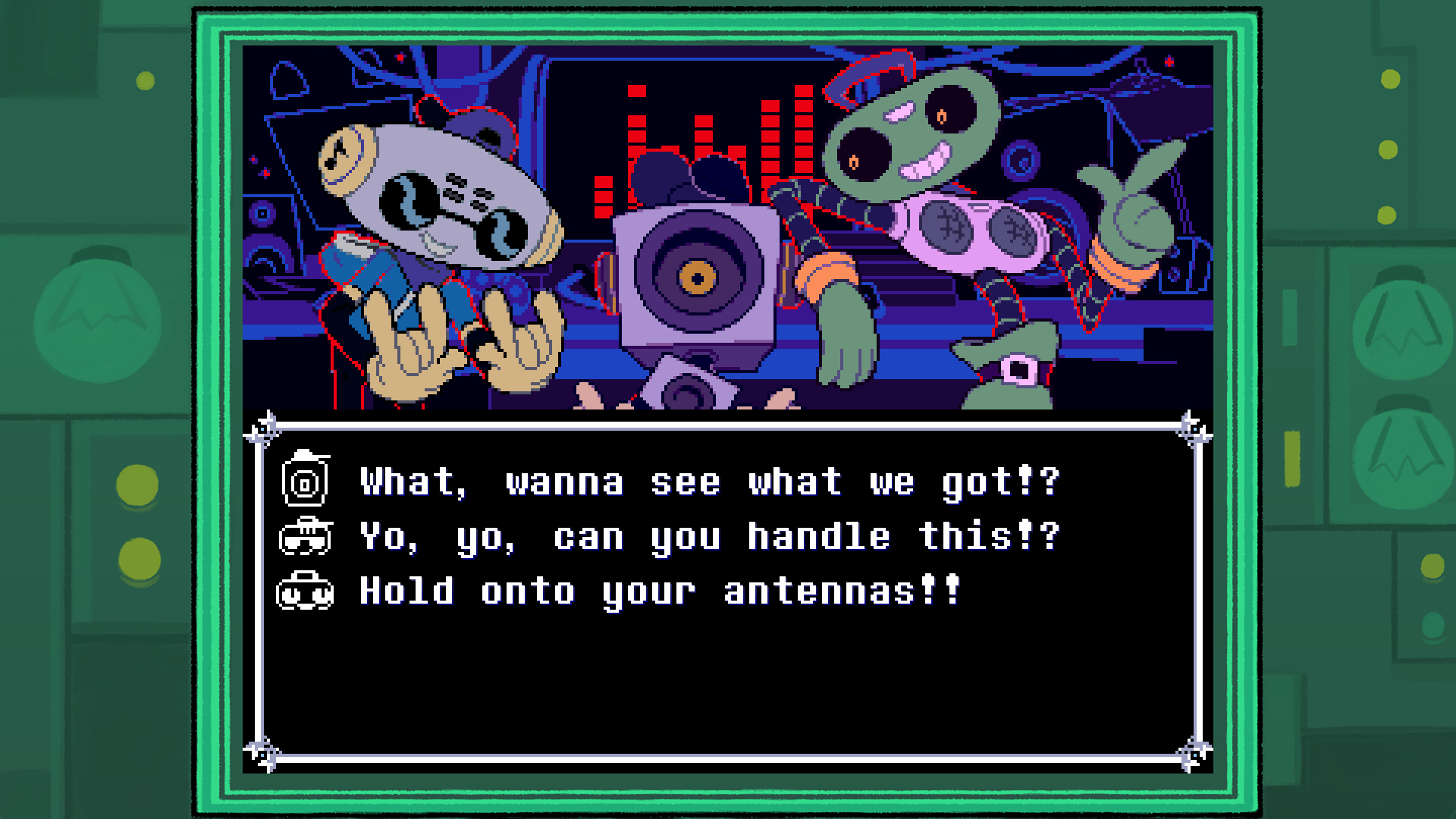
If you played Deltarune when Chapter 1 first launched on PC as a free demo, you won't be able to carry over the save data if you decide to buy Chapters 1-4 on a different platform. You however don't need to start from the beginning as you're free to select any chapter. If you start a later chapter without an existing save file, the game gives the benefit of the doubt and canonically assumes you spared and recruited all the enemies in the previous chapters.
Deltarune is just stuffed with personality, which is testament to Fox's laugh-out-loud hilarious writing that's not only conveyed in the text itself but through its delivery of comically timed scrolls and awkward pauses. It's also in the art direction, which retains the crude but charming pixel art established in Undertale but is given a broader palette by main artist and animator Temmie Chang. Even while sticking to a primitive retro look, there's definitely richer use of sprites, color and animations, such as how Kris and Susie change appearances when jumping into the Dark World, which reminds me of crossing into the Metaverse in Persona 5.
The benefit of Deltarune's episodic structure means each chapter allows the game to explore very different themes on a larger scale than Undertale, all while still being far more digestible than a bloated 3D AAA equivalent (looking at you, Final Fantasy 7 Rebirth). Chapter Two's Cyber City offers more vibrant environments than Chapter One's Card Kingdom, while later chapters take the surprising approach of emulating the kind of pseudo-3D effects popular in the latter half of the 16-bit era. Once your party is sitting down playing a NES-style Zelda clone game within a game while your prerendered-CG host observes, you're past trying to fit Deltarune's influences into any neat category and just enjoying all the broad tapestry of references Fox is pulling together.
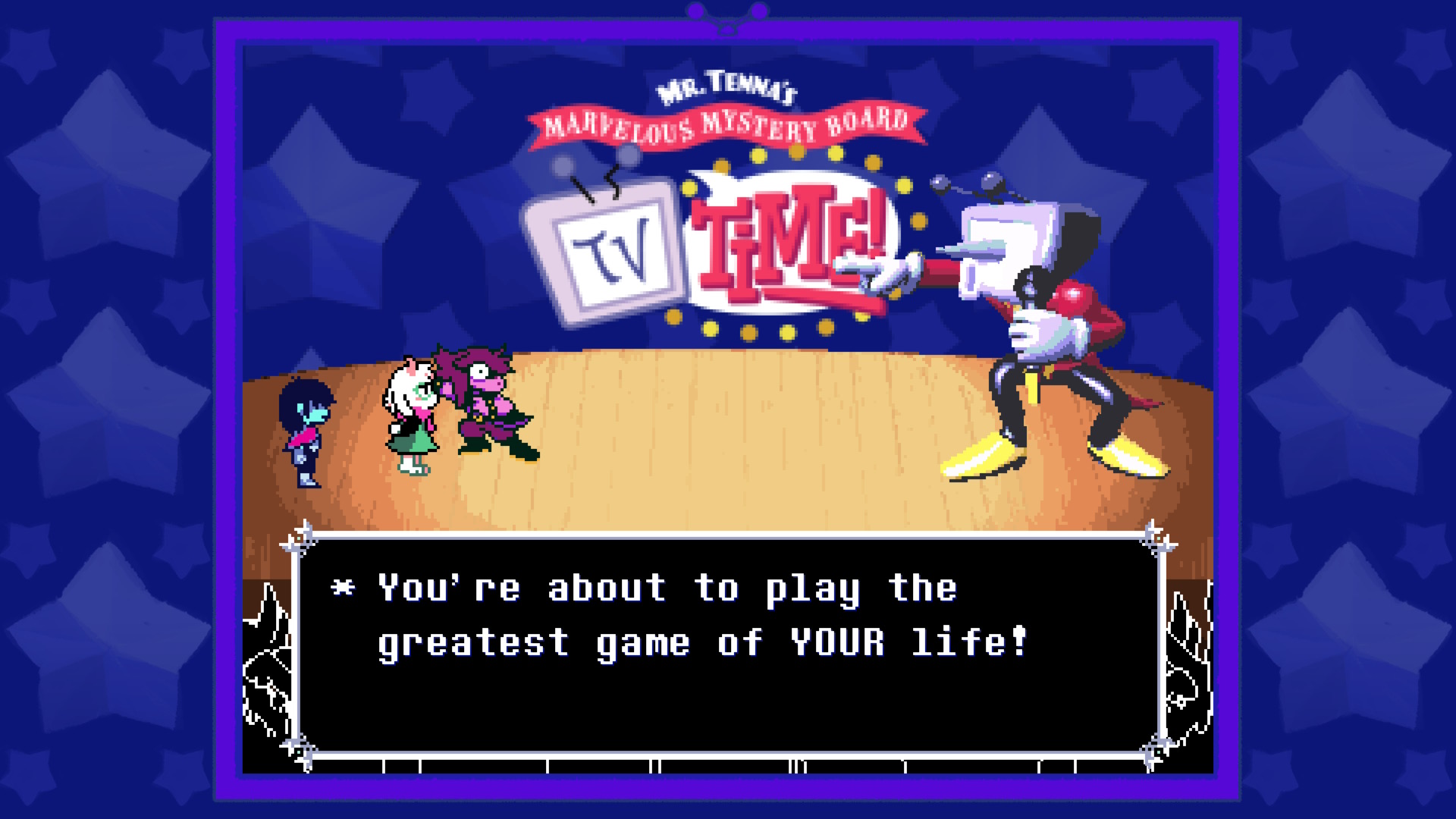
Speaking of themes, the catchy chiptune soundtrack is nothing short of incredible, from the battle theme to the main theme that's now permanently stuck in my head. As much as they're enjoyable on loop, some also evolve across chapters, giving a new twist and freshness that also fits with how the narrative develops.
At just over the halfway point, Deltarune has already eclipsed Undertale in length and scope. Even while it remains an unapologetically weird old-school pixelated JRPG, each chapter is a new canvas to stretch the meaning of a retro-inspired game, which doesn't have to conform to any rigid rules, style, or logic. The good news is we only have to wait until 2026 for Chapter 5, which is one mystery I'm glad to have resolved before I hop back online to pore over all the possibilities of where Toby Fox will take this epic tale next.
Deltarune chapters 1-4 were reviewed on Nintendo Switch 2, with a code provided by the publisher.
Want another adventure? Check out our best RPG games list!

I'm a freelance games journalist who covers a bit of everything from reviews to features, and also writes gaming news for NME. I'm a regular contributor in print magazines, including Edge, Play, and Retro Gamer. Japanese games are one of my biggest passions and I'll always somehow find time to fit in a 60+ hour JRPG. While I cover games from all platforms, I'm very much a Switch lover, though also at heart a Sega shill. Favourite games include Bloodborne, Persona 5, Resident Evil 4, Ico, and Breath of the Wild.
You must confirm your public display name before commenting
Please logout and then login again, you will then be prompted to enter your display name.
